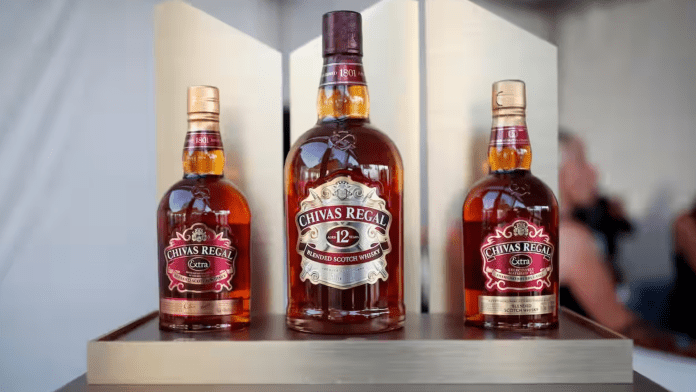Chivas Brothers, the Scotch whiskey division of French distillery Pernod Ricard, has emphasized that the successful completion of the free trade agreement (FTA) with the UK, aimed at reducing whisky import duties, is critical and will determine the company’s fate if not concluded by the end of October.
“It’s kind of make or break if it doesn’t happen in the next few weeks. If we don’t have something substantial by the end of October, early November, it means that we need to wait for the next wave of discussion. I think it’s gone for a while because the election period is never good for any FTA,” said Jean-Etienne Gourgues, the chairman and chief executive of Chivas Brothers, which sells Royal Salute, Glenlivet and Ballantine’s.
Within the proposed Free Trade Agreement (FTA), both Scotch whiskey producers and the UK are advocating for an immediate reduction in import duties from 150% to 75% upon the FTA’s signing, followed by a gradual decrease to 30% over the course of three years. Conversely, Indian whiskey manufacturers are pushing for a more gradual reduction, aiming for a 10-year transition period to bring the duty down to 50%.
“We are definitely hopeful because it will be a very good thing for the development of whisky in India. It has to be a level field, and today any Indian whisky can be exported to the UK with zero tariff. But the opposite isn’t true, and this is providing a huge barrier to get super high-end quality of malt in India,” said Gourgues.
Pernod holds the title of being the largest whiskey producer in the nation, commanding a significant 25% share of the market. This stronghold is bolstered by renowned brands like Royal Stag, Imperial Blue, and Blenders Pride. Additionally, as the world’s second-largest distillery, Pernod also possesses the distinction of owning India’s top-selling scotch, 100 Pipers, with an impressive annual sales volume exceeding 1.5 million cases.
Nonetheless, the company, which achieved a remarkable 13% sales expansion in the last fiscal year, is not exclusively banking on the Free Trade Agreement (FTA) to fuel its growth strategy in India, a market that has surpassed France to become the world’s largest scotch importer in terms of volume. In terms of value, the United States remains the company’s most significant scotch market, followed by France and India. Chivas underscores the pivotal role of India in its global inventory forecasting and planning, particularly for malt varieties that require years of aging. In fact, the company even encountered supply constraints due to the surging demand in India, necessitating the shipment of products from other markets to meet this demand.
“When we design any forecast, we always look at India first because of the size, interest for the category and the size of the population. It is good to have demand which outstrips the supply. But then the challenge is how can we keep on servicing those consumers,” added Gourgues.
“India is one of the most difficult if not the most difficult market to operate, because of all the different regulations and excise by state, and this is quite unique in the world. Even in terms of FTA, it’s at the federal level, not at the state level. So even if FTA is going to happen or not, the way it’s going to learn from the state level to the federal level is another story.”
Over the last two years, the sales of Scotch in India have seen a substantial nearly twofold increase. This remarkable growth can be attributed to the increased consumption among millennials and a burgeoning middle class that has gradually shifted toward higher-end whisky options. According to the most recent data gathered from industry executives by global alcohol market analysts IWSR, the market witnessed an impressive year-on-year growth rate of 33%, reaching a total of 7.5 million cases (each containing nine liters) in 2022.





